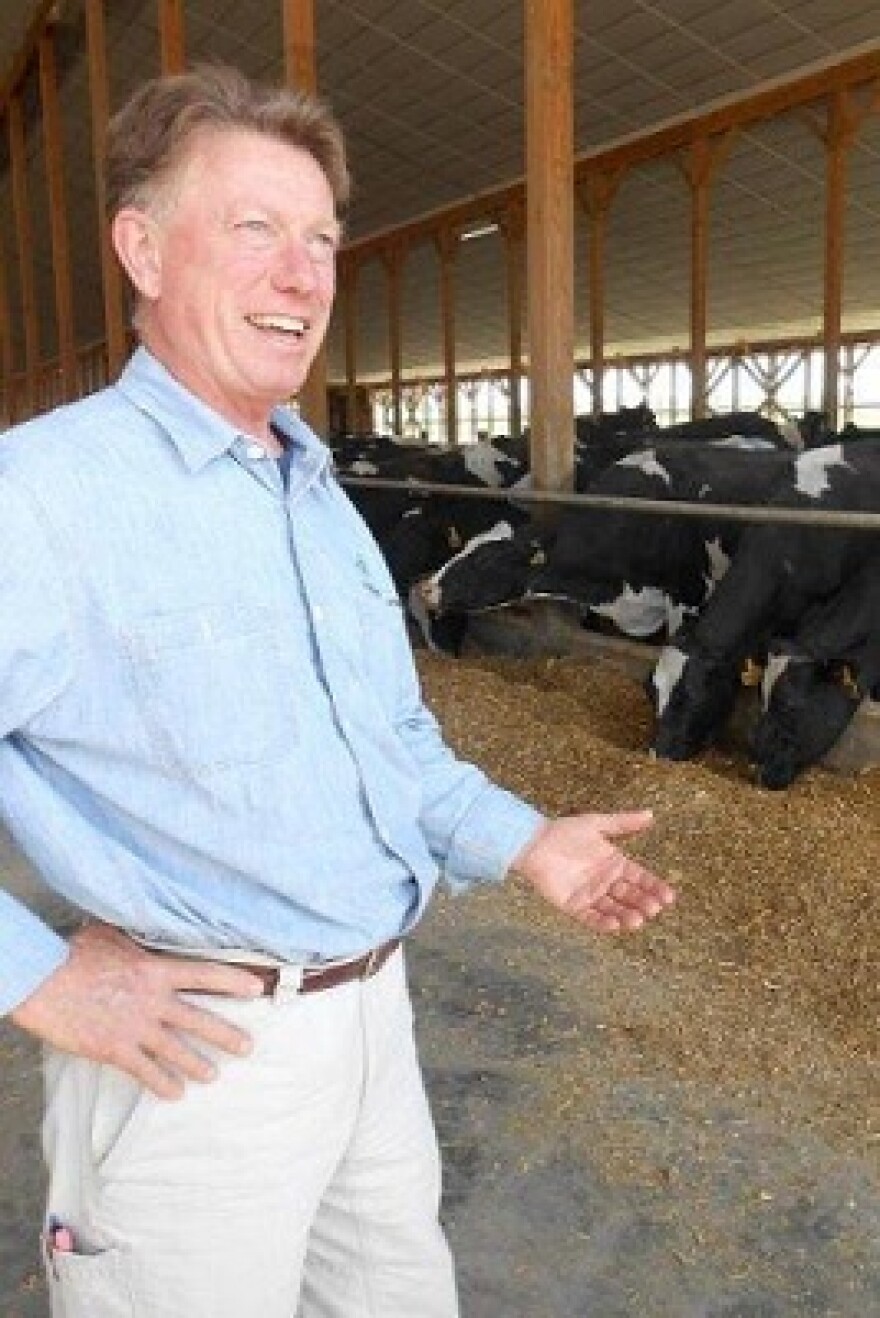A Tylerville dairy farm, in Jefferson County, is growing, in part thanks to help from National Grid. The company awarded the farm a grant of $50,000 to increase its access to electricity.
Milk Street Dairy has grown quickly since it began in 2008, with a herd of 400 cows. Now up to about 1,000 animals, the farm's partners want to add 800 more by 2014.
To do that, the farm needs a costly upgrade to accommodate its power-hungry machinery. Gaining access to what's known as three-phase power can be an obstacle to businesses' growth, especially in remote, rural areas. That's because there often aren't enough customers to make extension of the service affordable.
Joe Russo is lead economic development representative for National Grid. He says the company didn't want to become a barrier to business growth and economic development in rural communities.
“Eventually their growth requires three-phase power. We were standing in the way of that, so that's why we created the program,” he said.
That's National Grid's Three-Phase Power Incentive Program. Recently, officials from the utility company handed over a giant fake check to one of Milk Street Dairy's owners, John Ferry, in his operation's milking barn. The gesture was a celebration of the farm's receipt of that $50,000 for the required power upgrade that, along with a $2 million investment from the business, will help make its expansion plans a reality.
John Ferry says growth at the farm will help boost the local economy, too.
“It means a lot more jobs. It means a lot more land rents, it means more business for everybody, from the Quick Stop down the road, that sells us gas and lunches, to the lumber yards and cement factories, and the feed mills that bring us 60 ton of feed a week,” he said.
Jay Matteson is agricultural coordinator for Jefferson County. He put a number on the impact increased dairy production has on the local economy.
“When you look at each of those dairy cows today, you're looking at $13,737 per cow, as far as the amount of impact they will have on our community,” he said.
Ferry says the dairy business in the state is on an upswing lately, especially with the booming market for Greek yogurt.






